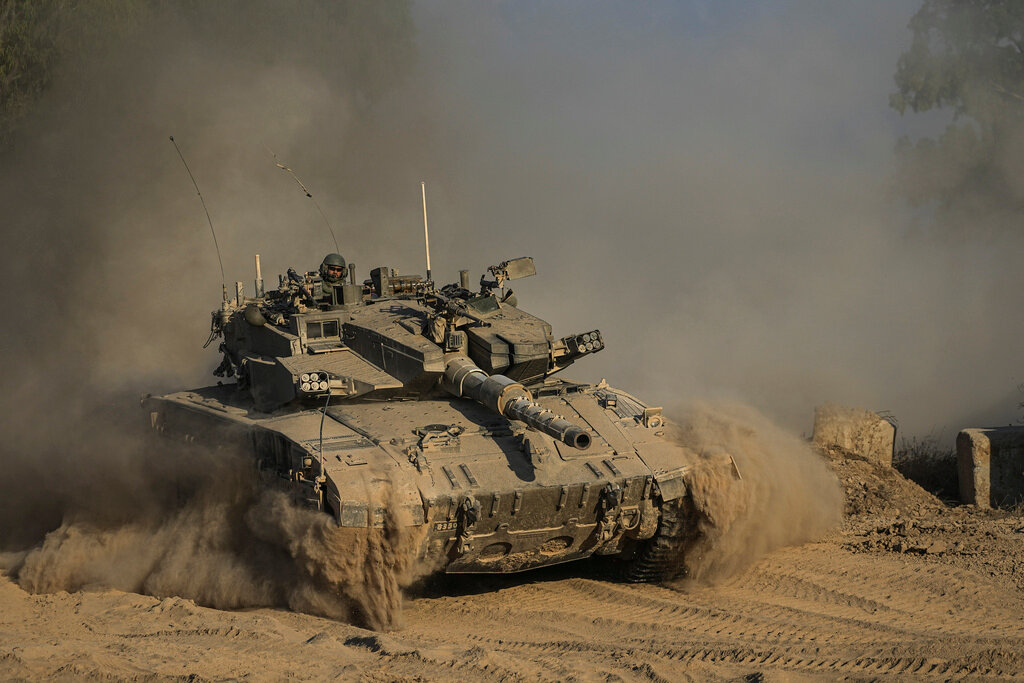Hamas claims military chief survived Israeli attack

MUWASI, Gaza Strip (AP) — A day after the Israeli military attacked Mohammed Deif in a massive airstrike, Hamas said Sunday that the group’s military commander was in good health.
Deif’s condition remained unclear after Israeli Prime Minister Benjamin Netanyahu said Saturday night there was “still no absolute certainty” that he was killed. Hamas officials provided no evidence to back up their claim about the health of a key architect of the Oct. 7 attack that sparked the war.
The Israeli military said Sunday that Rafa Salama, a Hamas commander considered one of Deif’s closest confidants, was killed in Saturday’s attack. Salama commanded Hamas’ Khan Younis Brigade. The statement did not provide any update on Deif, who has long been at the top of Israel’s most wanted criminals list and has been in hiding for years.
The killing of Deif would be the most high-profile assassination of a Hamas leader by Israel since the war began. It would be a major victory for Israel and a major psychological blow to the militant group. Netanyahu said all Hamas leaders were “sentenced to death” and assured that their killing would bring Hamas closer to a ceasefire.
Hamas political officials stressed that communication channels between the leadership inside and outside the Gaza Strip remained functional even after the attack in the south of the territory.
On Sunday, Israeli Defense Minister Yoav Gallant praised the pilots who carried out the attack and said Hamas was weakening every day, unable to arm itself, organize itself or “care for the wounded.”
On Sunday, a Palestinian from East Jerusalem carried out a car attack in central Israel that wounded four Israelis, two of them seriously. Israeli border police shot and killed the attacker after he hit people waiting at two bus stops along a busy road. The Israeli military said four soldiers were wounded, two of them seriously.
Israeli police commissioner Kobi Shabtai said such attacks were often “triggered” by events like Saturday’s airstrike in the Gaza Strip.



